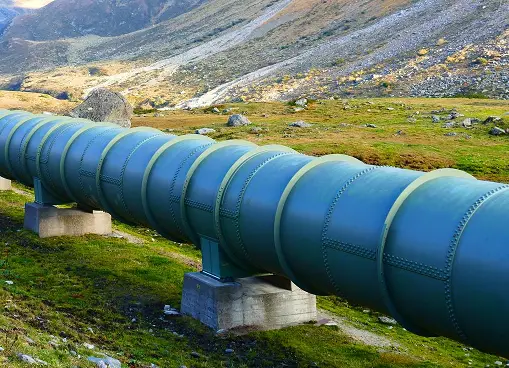On Monday, the news outlet Notes from Poland reported that the Prime Minister of Poland, Mateusz Morawiecki launched a defense of Poland’s state-owned energy company Orlen, after it increased shipments of Russian oil this month in spite of the tough national line Poland had laid down regarding abandoning imports from Moscow.
The nation’s only crude processing plant, a Unipetrol oil refinery in the Czech Republic, which is owned 100% by Poland’s Orlen, will increase its imports of the flagship Russian Urals blend, according to a Reuters report last week. Prague, in search of additional supplies in the event of disruptions in the supply of oil it purchases which transits via Ukraine, will reportedly buy 430,000 tons in June, an increase from May’s 400,000 ton purchase.
Orlen explained that being landlocked, the Czech Republic continues to be reliant on the Druzhba pipeline’s supplies of Russian oil. Last year, Druzhba’s crude deliveries received an exemption from the EU embargo on Russian oil imports.
In a statement, Orlen said, “Infrastructural constraints make it impossible to fully cover Czech demand for oil from directions other than Russia. Deliveries [of Russian oil] are necessary to ensure the security of raw materials and fuel in this country.”
The Polish prime minister commented on the continued import of Russian crude by Orlen, defending the policy and noting, that “we have access to the sea, [but] the Czech Republic does not. They are therefore dependent on oil pipelines…We do not want to prevent the Czechs from being able to drive their cars”
Although Poland “adheres strictly and meticulously to all sanctions,” it continues to remain the largest buyer of liquified petroleum gas (LPG) from Russia, even though it has pledged to stop all such imports.
LPG is a flammable gas which contains propane and butane, which is used in vehicles and heating appliances. In Poland, it is particularly popular for powering cars.
Russian LPG, unlike seaborne oil and petroleum products, is not barred from import by the EU import ban. Roughly 14% of the total Polish fuel market is made up of LPG.
Morawieki noted, when asked about his nation’s increased energy imports from Russia and how it runs contrary to the nation’s policy and rhetoric, “While you [the reporter asking the question] want Poles who have LPG-powered cars not to be able to drive them, we do not.”
The newspaper Rzeczpospolita earlier reported that last year, Poland purchased €710.3 million ($771 million) worth of Russian LPG, as opposed to to €417 million ($452 million) which was bought by the rest of the EU.

